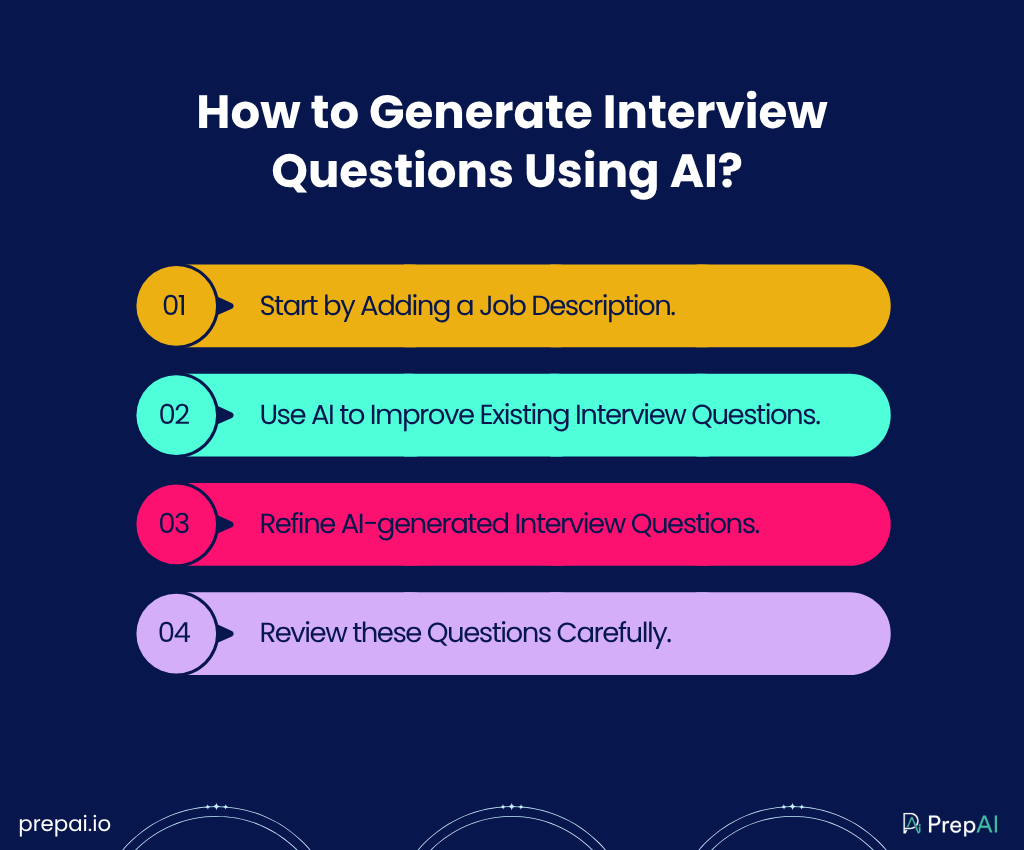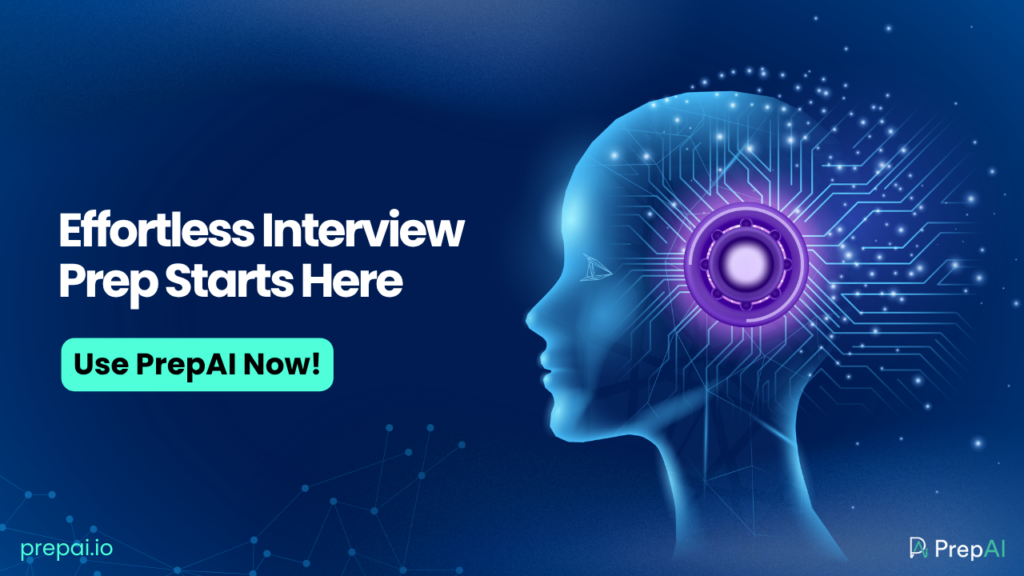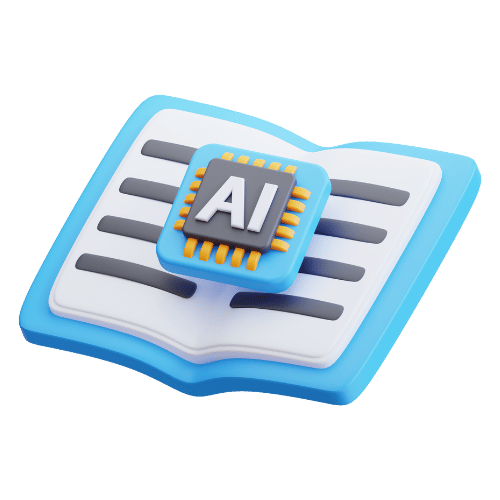Generative AI underlies patterns and structures from image synthesis to natural learning processes. It can resolve complex problems and generate unique interview questions to help prepare and test candidates. Let’s understand how generative AI can assist in preparing interview questions for different domains.
Just a few years ago, if anyone had thought of artificial intelligence as a corporate hire, it may have seemed far-fetched. But now, generative AI can assist in preparing the best interview questions, which can be a game-changer for proactive and forward-looking recruiters.
70% of the companies will use AI for hiring in 2025 because the use of generative AI is not limited to any industry. It is now capable of creating tailored content, conducting skill assessments, simplifying complex processes, and more using sophisticated algorithms. Using AI, recruiters have to spend less time on drafting questions and focus more on what really matters. Moreover, hiring managers can identify and engage top talent using competency-based learning assessment to ensure consistency across interviews.
The AI tools help in generating a variety of questions for candidates including mental-ability, skill-based, cognitive ability, etc. HR’s just need to specify the type of questions (aptitude / situational / english comprehension / data interpretation, programming, etc.) they want to include in the assessment generated via tools like PrepAI. The tool will generate similar types of questions that are unique and role-specific. Moreover, the tool will instantly provide a set of technical, behavioral, and cognitive questions customized for the position.
How Interview Questions Shape Hiring Success?
Accessing the right questions is important while conducting any interview. It reveals how they think, solve problems, approach situations, and handle challenges. Well-crafted interview questions create space for meaningful conversations, assisting recruiters to understand candidates beyond resumes. The challenge with writing strong interview questions is that it takes time, and recruiters who already have to work on multiple open roles may not craft fresh and insightful questions for every position. Drafting generic questions is easy, whereas the mental ability test questions require deeper insights and expertise to assess the candidates’ critical and cognitive skills.
Another barrier is bias. Human nature affects how we formulate questions; even with the best intentions, humans can favor particular backgrounds, experiences, or communication styles. According to Forbes, 48% of HR managers acknowledge that bias influences their hiring decisions and requires awareness and intentionality to ensure that the interview questions are varied and comprehensive.
The other major reason why interview questions shape hiring success is the issue with consistency. It can be difficult to keep a balanced and organized set of interview questions when several hiring managers are part of an interview. It can be challenging to objectively compare responses when some applicants are asked high-impact, thought-provoking questions while others are asked more superficial ones.
All these challenges can be effectively countered with AI interview questions and answer tools. These tools can help recruiters generate thoughtful, role-specific, and competency-based assessments, ensuring a precise, structured, and effective interview process. Thus, it reduces the human bias and sets a structure for multiple-interviewers in one go.

How to Generate Interview Questions Using AI?
Interviews are conducted not just to verify candidates’ experiences and skills, but they’re an opportunity to understand how a candidate thinks, resolves problems, and fits within the organization. Once the recruiters have finished reviewing resumes or applicants, it’s time to meet the selected candidates. Integrating AI can help in streamlining the process and generating AI interview questions using AI tools like PrepAI can create structured, thoughtful, and logical interview questions, saving time and ensuring consistency across the hiring process.
Guide to Generate Interview Questions & Answers
Recruiters need to find people with great critical thinking abilities since companies are looking for experts who can analyze data, solve complicated problems, and make well-informed decisions. Across all industries, these abilities are critical for logical reasoning, problem-solving, flexibility, and strategic decision-making. To generate interview questions for different domains, recruiters can follow these steps:
Start by Adding a Job Description
The job description is the greatest place to start when using AI to create pertinent interview questions. You can use an AI tool to create specific interview questions and paste the job role tailored to the position. This output may include broad, or general questions that apply to most of the candidates. Review these AI-generated questions and refine them so that they align with the specific role and the organization’s needs.
Use AI to Improve Existing Interview Questions
After posting the job description, a set of interview questions will be available for the similar roles. However, defaulting to the same list, you can refine and enhance those questions with the help of AI tools. These questions can be competency-based learning assessments, cognitive ability tests, and more, as per the requirements of the recruiter.
To get these interview questions, you can:
- Start by adding the prompt in the tool and ensure candidates thoroughly comprehend the questions by clarifying any ambiguous wording.
- Enhance the structure of questions to encourage more in-depth & deliberate answers.
- Add a variety of situational, behavioral, and technical questions.
- Minimize prejudice by recognizing and rewording questions that can unintentionally give preference to particular experiences or backgrounds.
Refine AI-generated Interview Questions
Once you have the list of interview questions, the next step is to refine these questions as per the recruiter’s needs. These interview questions and answers can effectively assess a candidate’s hard skills, soft skills, and behavioral intelligence. Recruiters have to start by reviewing the job description and identifying the hard and critical skills that are necessary for different domains. For example:
- If recruiters are hiring for data analysis, AI tools like PrepAI can help in creating situational or technical questions to assess problem-solving skills.
- In other cases, if the team is hiring for management, this tool can generate behavioral questions that reveal a candidate’s approach to different situations.
Depending on the seniority level, these AI tools can modify the questions’ level of specificity and intricacy. Questions centered on basic ideas might be appropriate for an entry-level position, but more high-level, strategic questions might be needed for a leadership role.
Review these Questions Carefully
When AI drafts interview questions, it is necessary to review these questions as per the requirement. These AI tools allow you to edit the questions as per the domain you are looking for. To better fit the job requirements, skill level, and domain, you can add, change, or eliminate questions. This makes it easier to ensure the questions are pertinent, understandable, and in line with the talents you’re attempting to evaluate, be it technical knowledge, problem-solving abilities, or communication skills.

Conclusion
Generative AI can guarantee consistency, minimize bias, and save time, but it cannot replace human skill. By modifying AI-generated interview questions to suit the particular requirements of the position, business, and applicant, the top recruiters employ AI as a strategic aid. The recruiters can effectively build a diverse pool of questions related to technical, behavioral, situational, cognitive, and more.
The use of AI tools is not limited to one or two subjects; it can be applied to varied domains. From evaluating soft skills to mental ability tests, AI can generate tailored interview questions for any field. Talent acquisition professionals can develop smarter, and more productive hiring experiences with these AI-powered technologies.



